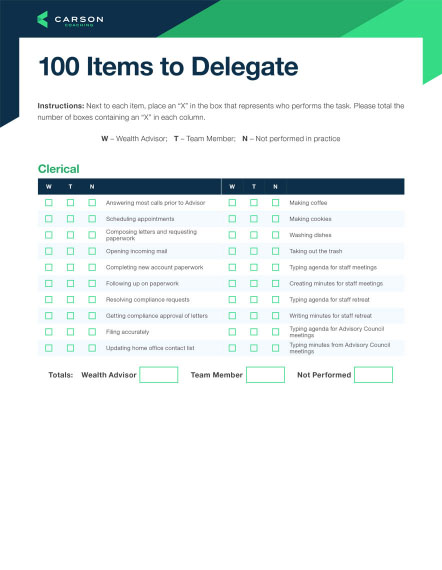Dr. Daniel Crosby’s career path started with a Doctor of Psychology degree. While working as a clinical therapist, he found his passion centered on human behavior. Daniel, the son of a financial advisor, soon learned the major impact behavioral psychology can have in financial services. He has become one of the most prominent voices in the behavioral finance world, writing multiple books, speaking at conferences and educational events across the country, and consulting financial advisors on behavioral finance.
Today, Dr. Crosby is the Chief Behavioral Officer at Orion Advisor Solutions, where he works with financial advisors to help them understand behavioral finance and in turn help their clients make educated financial planning decisions.
We spent some time talking with Dr. Crosby about behavioral finance, how advisors can better help their clients, where to begin in your learning of behavioral finance and more.
What’s your definition of behavioral finance?
My preferred definition of behavioral finance is the finance that accounts for the messiness of human behavior.
Much of what was out there wasn’t really taking people into account, or it assumed people are completely rational. Behavioral finance is just normal finance that accounts for human behavior.
Somewhat controversially, I hope that one day behavioral finance goes away. I want it to become just finance, where all it accounts for the behavioral elements and merges into a singular practice.
What do you do as a Chief Behavioral Officer?
I do a lot of speaking, writing and creating tools that can sit on an advisor’s desk. When someone hears me speak at a conference or reads my book, they are enthusiastic – but that’s short-lived. What I do at Brinker Capital is pushing to get behavioral finance much more implemented. We help inspire action rather than just educate that an action needs to be taken.
I’m in charge of what I like to call the three T’s: training, tools and technology.
Training: At Brinker Capital, we have a free course for advisors called the Center for Outcomes. We teach advisors how to integrate behavioral finance into their practice, including creating content for their clients.
Tools: We want to equip advisors and their clients with the resources needed to understand human behavior. We have a tool rolling out this year that presents human behavior in a visual guide. When you sit down with a client, you want them to quickly understand behavioral gaps, and that’s what this tool is designed to do.
Technology: We are working on a technology called Tulip that is a gamified market simulator – named after the tulip bulb mania in Amsterdam the 1600s, where tulip bulbs were being traded for essentially the cost of a home. Through our Tulip technology, advisors learn about their client’s individual behavior, and clients educate themselves on the effects of instinctual reactions.
Why would you say understanding behavioral finance psychology is important for a financial advisor?
To me, behavioral psychology is the only enduring competitive advantage advisors have. Think about what the profession competed against over time.
The first era of financial services was provisioned where you couldn’t do it without a broker. We were the gatekeepers.
Then technology intermediated and people could then buy and sell their own shares. Wall Street’s pitch became “sure this is cheap, but we are going to outperform that fund,” which has since proven untrue many times.
I think that the only competitive advantage left is financial planning and understanding behavior. Those who do planning typically perform better. It’s not because the advisor understands the funds better, it’s because we can help stop a client from getting in their own way.
Human behavior is pretty unchanging. Advisors have a great role to play and job security if they are focusing on the right things. It becomes an enduring place to plant your flag.
How can advisors start incorporating behavioral finance into their daily practices?
Human behavior is extremely resistant to change. We like to do what we always have done. To incorporate this psychology into your business, I like to think about it as three E’s.
Education: Advisors should be on the front line of their client’s lives. They should be the smartest person in the room and educate with that knowledge. Client events can be a place for this, especially to reach areas that are traditionally underserved in financial services.
Environment: Education is a weak predictor of behavior. Take food for example. We have food with labels on it saying it isn’t good for you. Yet we eat it anyway, right? We are educated, but the environment allows us to operate outside of that education. For advisors, the environment is the portfolio. It’s consistent with goals, values, risk tolerance and other customized characteristics.
Engagement: Engagement means just-in-time advice, which is the most powerful. Real-time advice means you’re the final wall between a client and a bad decision. Even if people know the right thing to do, in a moment of panic it isn’t a guarantee you’ll do the right thing. Advisors are the final line between a client and a life-changing poor choice.
Do you recommend an advisory firm have a behavioral expert on staff?
I think for shops of a certain size that can afford a behavioral expert, they should have one. For large firms it makes total sense for someone to oversee the behavioral side of the client experience.
But for two-person firms or smaller budgets, that’s probably not doable. That’s why there are training courses and books out there – and it’s important for those advisors to get involved with those materials.
How can advisors better educate their clients on behavioral finance?
There is a concept in psychology called salience. Salience is how memorable a lesson is, specifically how germane it is in someone’s life. You need to couch all of your lessons within a particular client experience or goal – don’t teach in abstraction.
You want to help your client understand how something applies to them. So, if you’re teaching on something behavioral, like goals-based investing or the bucketing philosophy, use their particular goals and financial situation along with examples of volatility in their lives.
Another thing I think is fun lessons and gamified lessons stick. Clients love learning this stuff because it’s a look into their lives. They are not naturally curious about bond yields, but you can present that information in a more interesting way.
What is the top behavioral bias that an advisor should expect from an investor?
There are more than 200 behavior biases that have been identified, but many are not super unique. I broke down these 200 into four categories that account for 90 percent of the biases.
Ego: An investor can be overconfident.
Emotion: Favoring the heart over the head.
Attention: Human tendency is to confuse what is scary, vivid or salient with what is probable. People are scared of sharks, but 50 times as many people die taking selfies than from shark attacks. We can be scared of long-term investing but that doesn’t reflect probability.
Conservatism: There is a tendency to do what someone has always done, like stay in cash or being risk or loss averse.
What’s the No. 1 piece of advice you’d give to an advisor starting today?
I’d say to start by looking at yourself. One misstep in the advisor community is to roast clients and say “I totally see my clients in these stories.” But you can really only take your clients as far as yourself.
Great advisors do an analysis of themselves and shed light on their own biases and behavioral missteps. Then that will transform into authenticity as you bring your clients along.



